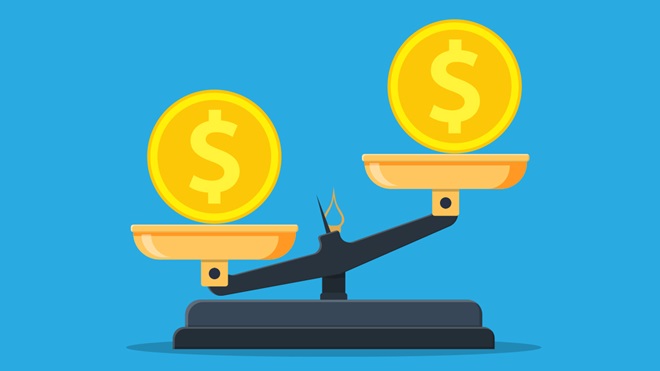Need to know
- Differential pricing is when people are charged different prices for the same product or service
- In our latest nationally representative survey, we asked Australians for their thoughts on differential pricing
- Only one in four are aware that it happens, seven in ten don't think it's fair, and over half don't know if differential pricing is legal or not
In our recent investigation of how dating app Tinder charges some people more, we found one person can be charged up to five times as much as another to sign up for its paid service, Tinder Plus.
We found older people are charged more, but price variations within age groups suggest the company is using other, unknown factors to further personalise its prices.
We also explored how the scope of differential pricing has been expanding rapidly alongside the amount of information about us that's being gathered. How accurately you can predict what someone will pay depends largely on how much you know about them.
Our investigation struck a nerve, with coverage by media organisations around the world and consumer organisations in other countries launching investigations of their own.
Most Australians unaware of differential pricing
In our latest nationally representative survey, Consumer Pulse, we asked Australians for their thoughts on differential pricing. The responses show most people don't like the idea, and many don't realise that it's a current business practice.
Only one in four (26%) Australians are aware they may be charged different prices to other people. But there's greater awareness of the practice among men (33%), people aged 18–34 (31%), university-educated people (34%) and people on incomes higher than $100,000 per year (35%).
Concern about personal information
About three in five Australians are concerned about personal information on social media (61%), income level (61%), browsing habits (60%) and where they live (57%) being used to set different prices. Overall, women are more concerned than men about differential pricing, particularly about time of shopping online, location, family situation and gender data being used to set prices.
About seven in 10 (69%) Australians don't think differential pricing is fair, while 18% think it's fair only if a company is transparent about it. Eight percent aren't sure if it's a fair practice or not.
About seven in 10 Australians don't think differential pricing is fair
Just over half of Australians (52%) don't know if online businesses are allowed to set different prices for products or services based on personal information. One in five people think there are laws or rules already in place to stop the practice, and the vast majority (78%) think there should be rules or laws in place.
Not necessarily unlawful
In fact, the practice of charging people different prices for the same product is quite common and, in many cases, lawful. Think student fares for public transport, or haggling at a market. The practice may be unlawful if it's based on unjust or prejudicial treatment of different groups of people.
Most think differential pricing is unfair
Our survey found most people think it's unfair to charge different prices based on any characteristics, but using gender (89%), sexual orientation (88%), personal information on social media (86%), family situations (85%) and education (85%) are perceived as the most unfair.
There's a little more uncertainty when it comes to income and wealth, with 14% saying it's fair to charge higher earners more than lower income earners and 13% saying it's fair to charge people living in wealthier areas more than those in less wealthy areas. The majority of people, however, believe these practices are unfair (74% and 77%, respectively).
Interestingly, about a quarter of Australians (26%) would be happy to pay a different price based on the use of personal information if the pricing benefits them.
CHOICE calls for greater pricing transparency
Erin Turner, director of campaigns and communications at CHOICE, says the data shows businesses' pricing practices don't match up with what their customers expect.
"We know companies are using consumer data to create complex algorithms and in some cases using those algorithms to set different prices for different customers," she says.
"What we need is for companies to come clean with customers and tell them upfront if they charge different prices to different groups of people. Only when we have transparency can people begin to vote with their wallet."
We're on your side
For more than 60 years, we've been making a difference for Australian consumers. In that time, we've never taken ads or sponsorship.
Instead we're funded by members who value expert reviews and independent product testing.
With no self-interest behind our advice, you don't just buy smarter, you get the answers that you need.
You know without hesitation what's safe for you and your family.
And you'll never be alone when something goes wrong or a business treats you unfairly.
Learn more about CHOICE membership today
Stock images: Getty, unless otherwise stated.



